
For a new mother, the biggest challenge is to keep up the energy levels between all the diaper changes, endless crying, and feeding.
But no one wants to wear maternity clothes once the baby arrives, and the struggle begins to try and lose those extra pounds gained during pregnancy.
While dealing with this dilemma of increased energy requirements and urge to get back in pre-pregnancy shape, you need to eat right.
If you are breastfeeding, you need to eat food that will nourish and replenish your body with the lost nutrients, as well as provide essential nutrients to your baby for its growth.
But with a new baby in the house, no one has the extra time necessary to plan a whole meal that is high in energy, provides important nutrients for the infant’s growth, and at the same time support weight loss.
Here are some superfoods that you can easily include in your diet to make your life a little simpler and healthier.
1. Salmon

Salmon is considered one of the world’s healthiest foods. It is packed with nutrition and is a source of omega-3 fatty acids, essential protein, vitamin D and minerals that are vital for you and your baby’s health.
Omega-3 (most importantly DHA and EPA) are important for the infant’s brain, eye and nervous system development. Salmon is also low in saturated fat, making it ideal for weight loss.
But salmon and other fish can have mercury contamination, which has adverse effects on the growth of the child when passed through the mother’s milk. Since fish is a nutritional powerhouse, the risk can be easily eliminated if you know which fish to eat.
FDA and EPA recommend that nursing and pregnant women should avoid fish that can contain high levels of mercury like shark, swordfish, king mackerel, and tilefish. It is also advised to limit consumption to 12 ounces per week.
Read more about Salmon recipes here.
2. Brown Rice

In a hurry to lose baby weight, you might be considering cutting back on rice. But brown rice is a healthy alternative, as it is not only considered a lactogenic food that increases the supply of milk, but is also rich in fiber.
It is rich in nutrients like vitamins and minerals, and it also contains choline which improves fetal brain development and prevents liver damage. Brown rice contains complex carbs which keep you feeling full longer and regulate your blood sugar. So replace your white rice with brown in all your recipes for its health benefits.
3. Berries

Berries make a super speedy snack and pack in lot of nutrition. Consider any berry of your choice; blueberries, strawberries, acai, goji or blackberries. They are all loaded with antioxidants, essential minerals, vitamins and fiber.
Choose darker berries as they are more antioxidant rich. They also provide good carbs which are important to keep up your energy levels. Use it on top of your favorite cereal or just add it in yogurt and enjoy. Read more goji berry recipes here.
4. Leafy Greens
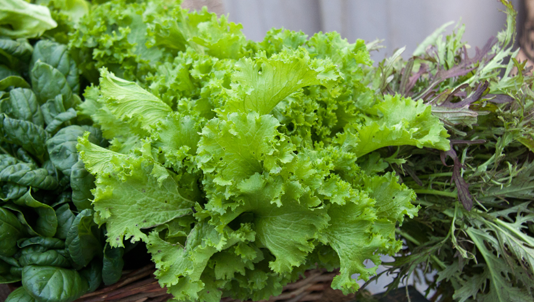
Many breastfeeding moms stay away from leafy greens as they tend to make babies gassy. But if that’s not the case with you, don’t shy away from eating a lot of greens like kale, spinach, broccoli and others. Read why Kale can be called the king of superfoods here.
Kale not only increases the supply of breast milk, but also contains calcium and iron. It is a good source of fiber and protein and is very low in cholesterol. It also provides folic acid, which is essential for a child’s healthy brain development. Kale is not just used in salads but it is very popular these days in green juices too.
5. Legumes
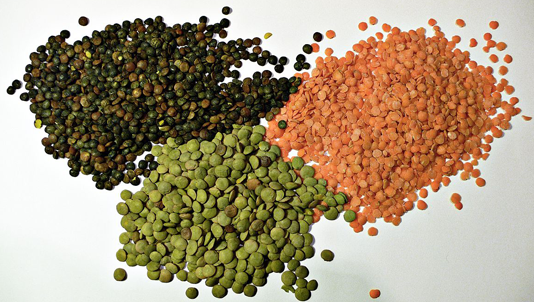
Legumes are nothing but your humble beans, lentils and dried split peas (including chickpeas). These legumes are a rich source of protein, fiber and iron, which are all very important for new moms. They also keep you feeling full longer and help you maintain your energy levels.
Though you might be cautioned to eat legumes as they might create some gastric discomfort, it’s worth a try. Particularly give the darker beans, like black beans, a try.
6. Dairy Products

Include a lot of calcium in your diet from yogurt, low fat milk, cheese, buttermilk and other dairy products. Along with calcium, they provide vitamin D that improves bone health. Dairy also provides essential minerals and proteins that are important for health. With a variety of low fat flavored yogurt options it is one of the easiest options for moms that need food on the go.
Dairy product allergies are one of the most common allergies in infants, however. If you are nursing and consume dairy products, beware of symptoms like frequent loose stools and vomiting from the infant, which can be signs of dairy sensitivity. Eliminate dairy from your diet and consult your doctor.
7. Nuts

Nuts make a convenient snack for busy moms. They were earlier believed to be high in fat and usually avoided, but they are actually a source of monosaturated fat that is essential for the high energy needs of a new mom. All nuts, including almonds, cashews, and macadamia nuts, are one of the best foods to consume post pregnancy as they are considered lactogenic foods. They are a nutrition powerhouse, packed with protein and fiber.
Almonds are also a good source of calcium, if you are vegan or otherwise, which is essential for nursing moms. Walnuts are rich in omega-3 which improves fetal brain development. And cashews provide folic acid and iron which are also vital for healthy baby growth.
But be warned before consuming nuts if you have a family history of nut allergies. Consider waiting until at least 3 months post-pregnancy before experimenting with foods that your family might be allergic to.
Read all about the nuts, seeds and dried fruits superfood guide here for more information.
8. Oatmeal
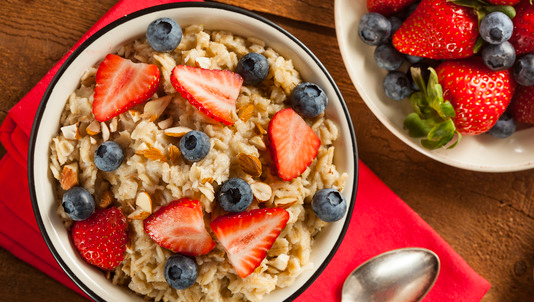
One of the best breakfast options after a sleepless night is a bowl of oatmeal. This high fiber whole grain meal will keep you full for longer. They are also a good source of iron, which can prove to be very beneficial in improving your milk supply. With a variety of options available today from instant oatmeal to quick oats, they make for a quick and healthy breakfast.
9. Eggs
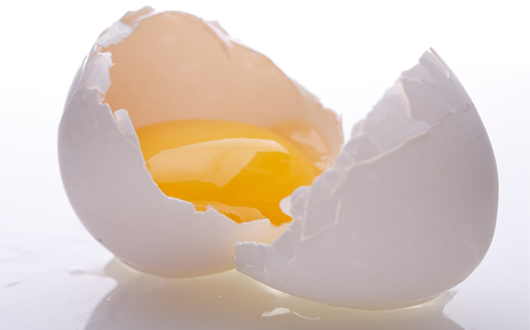
Forget the plain white toast for breakfast and include versatile, protein-rich eggs in your breakfast. You can have them boiled, fried, scrambled or baked. Eggs are also a great source of folate, iron and choline.
Folate and iron are both recommended prenatal and neonatal supplements, to help avoid the chance of anemia, and allow healthy brain development of the baby. Both folic acid and choline are also important for helping protect the child against neural tube defects. Choline is also important for the new mom’s health as well, as it reduces the chance of developing breast cancer.
Try omega-3 fortified eggs to reduce the risk of postpartum depression and baby blues. The essential omega-3 fatty acids are claimed to be helpful in recovery and also play an important role in brain development and overall health of the baby.
10. Avocado
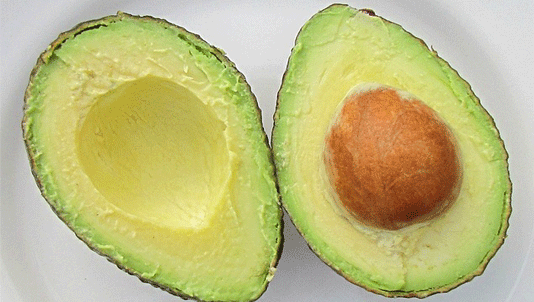
This nutrient dense fruit is a good source of folic acid. Avocados are a good source of monounsaturated fat which is heart healthy and helps regulate cholesterol levels. It also provides omega-3s along with minerals and vitamins. You can add them to your smoothies for a creamy texture, or just enjoy a bowl of delicious guacamole with nachos. Read more facts about the various health benefits of avocado here.
11. Citrus Fruits
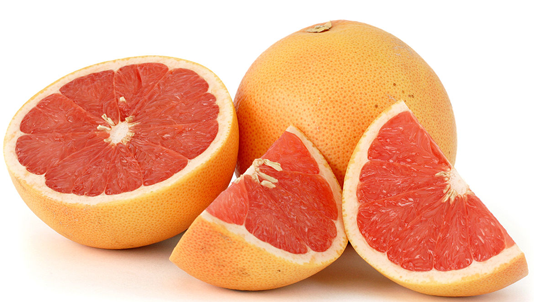
Citrus fruits are excellent source of vitamin C. They are one of the best foods for postpartum women as they are tasty and contain essential nutrients recommended for both mom and baby. They do not contain any fat or cholesterol. They are rich in fiber, potassium, folate, calcium, thiamin and minerals. Fresh citrus is also loaded with antioxidants, which are required to flush out toxins.
We mentioned the benefits of folate, calcium and fiber in nursing women and babies. But vitamin C is equally essential; not only for boosting immunity and fighting colds, but also it helps your body to absorb iron better. So drink a glass of orange juice every morning. Choose vitamin D fortified juice, if available, which helps in calcium absorption and improves blood circulation.
12. Sesame seeds
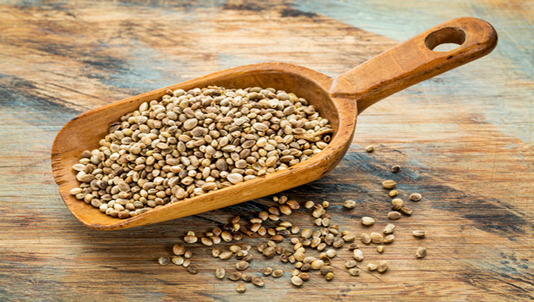
These tiny seeds are loaded with minerals like iron, copper, magnesium, and phosphorous. They are also a good source of calcium, which is vital for the bone and tooth health of nursing moms. Sesame seeds are also proven foods for increasing the supply of milk.
13. Dates
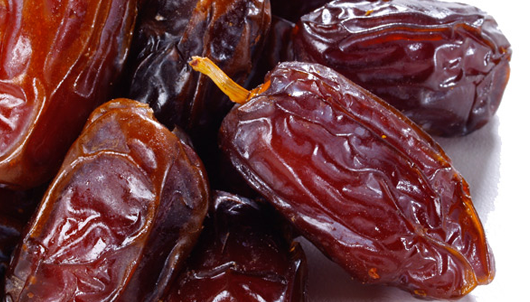
Dates are another way to help increase milk supply, just like sesame seeds and leafy greens, as they increase prolactin. Dates are a great source of calcium, which is vital for replenishing the lost calcium.
Dates are also rich in dietary fiber and help lower cholesterol, which helps you lose the baby fat. This natural sugar package can be eaten as a quick snack or added on top of your hot oatmeal.
14. Whole grains
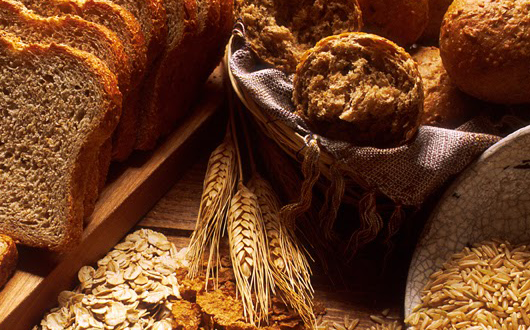
Include a lot of whole grains in your diet like quiona, millet, whole wheat and even popcorn! They have more fiber, protein, and essential nutrients like B vitamins.
Read the labels of the whole grain products you buy carefully, as the ingredients can be very misleading. More and more refined products are being marketed in the name of fortified and bought under the impression of being a healthier choice.
15. Lean Meat

You have heard that they are an excellent source of protein, but lean beef and pork also provide iron and vitamin B. You need to eat extra protein for that additional energy required with a new baby around.
Don’t forget to drink lots of water as you breastfeed, to keep up the milk production. Also avoid caffeine and alcohol as much as possible. And in case of any allergies, consult your doctor to avoid any harmful effects later.
Enjoyed 15 Energy Boosting Superfoods for New Moms? Share it with your friends so they too can follow the Superfoodsliving journey.
Share on Pinterest
